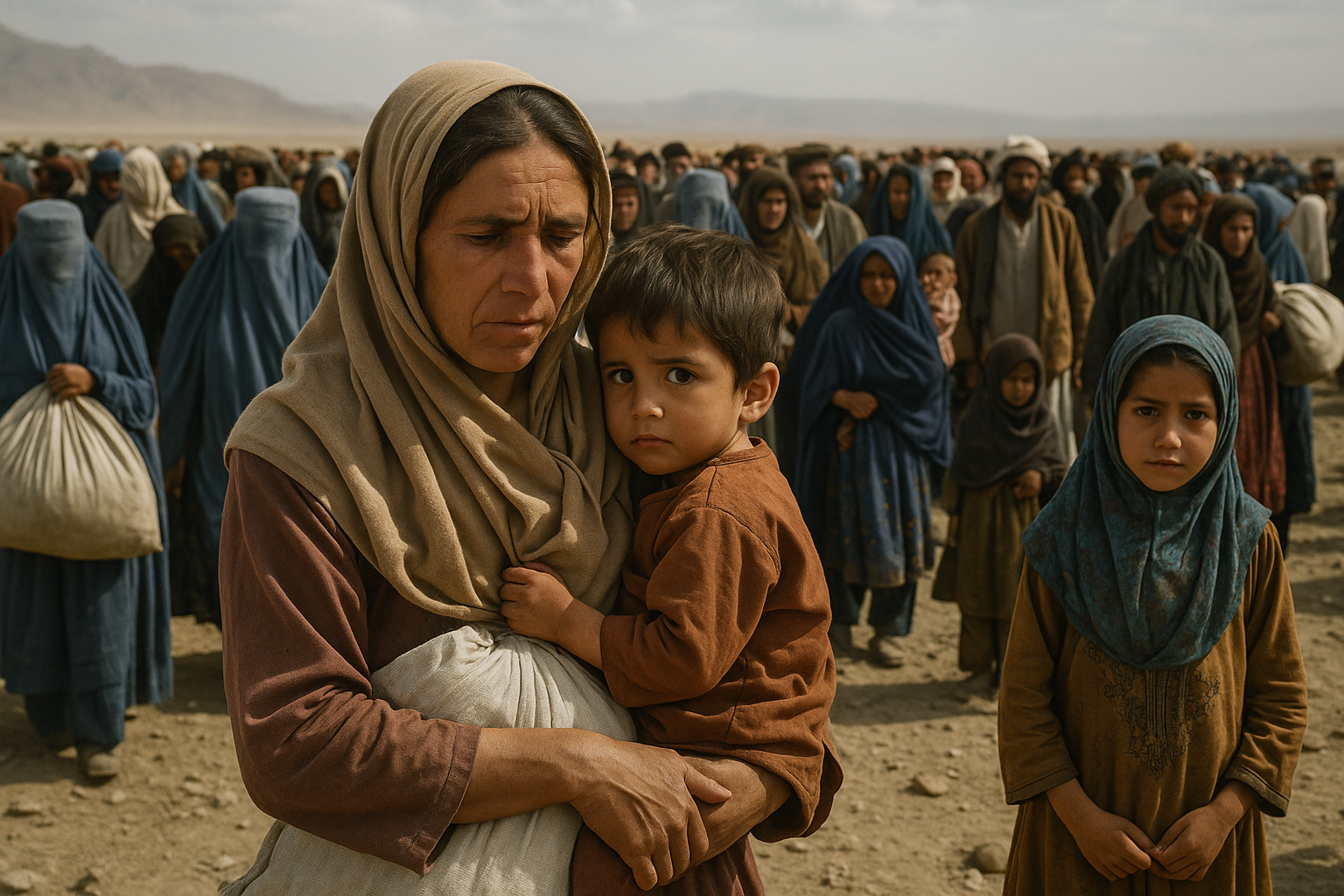UNHCR Seeks $71M as Forced Afghan Returns Spark Deepening Crisis
Despite these calls, recent months have seen an acceleration in deportations and other forms of involuntary return. UNHCR continues to urge both governments to suspend such actions and prioritize humane alternatives.

The humanitarian situation in Afghanistan is rapidly worsening as a sharp increase in forced returns from neighboring countries pushes the crisis toward a new tipping point. The United Nations High Commissioner for Refugees (UNHCR) issued a stark warning this week, revealing that more than 251,000 Afghans were forced to return from Iran and Pakistan in April 2025 alone. Over 96,000 of these were deportations, often carried out in distressing and inhumane conditions.
These mass returns, occurring despite dire conditions inside Afghanistan, are intensifying existing vulnerabilities and creating severe pressure on already overburdened communities. The UNHCR is calling for an urgent funding injection of $71 million to assist returnees and bolster regional stability over the next nine months.
Pressure on Host Countries, But Rights Must Be Respected
Afghanistan’s neighboring countries, particularly Iran and Pakistan, have long been hosts to millions of Afghan refugees. UNHCR acknowledges the economic and social pressures these countries face. However, it stresses that returns must be voluntary, safe, and dignified, warning that forced or pressured returns are unsustainable and risk destabilizing the broader region.
Despite these calls, recent months have seen an acceleration in deportations and other forms of involuntary return. UNHCR continues to urge both governments to suspend such actions and prioritize humane alternatives.
Vulnerable Groups at Heightened Risk
Among the returnees, many face severe protection risks upon re-entry into Afghanistan. Women and girls are particularly affected, amid ongoing restrictions on education, employment, and freedom of movement. Other at-risk groups include ethnic and religious minorities, human rights activists, journalists, and people with prior affiliations to international institutions.
UNHCR warns that returnees face not only human rights threats but also economic and environmental crises. Afghanistan is grappling with soaring unemployment, widespread poverty, and the impacts of natural disasters and climate change, which further limit reintegration opportunities.
A Worsening Trend: Over 1.5 Million Returns in 2024
The crisis has escalated dramatically since the start of 2024. More than 1.5 million Afghans have returned or been deported this year alone, adding to the 3.4 million total since 2023. These mass returns are overwhelming local governments, draining resources, and triggering secondary displacements within Afghanistan and across its borders.
The pressure on transit and host communities is also leading to new irregular migration flows, particularly toward Europe, where Afghans now represent 41 percent of arrivals from the Asia-Pacific region.
UNHCR’s Emergency Response Plan
In response, UNHCR is intensifying efforts across Afghanistan, Iran, and Pakistan in partnership with agencies such as the United Nations Development Programme (UNDP) and the International Organization for Migration (IOM).
The proposed $71 million in additional funding will support:
-
Financial aid to help returnees meet basic needs, access services, and participate in livelihood programs.
-
Reintegration support, particularly for women and girls.
-
Enhanced reception facilities at border areas to offer immediate humanitarian aid and protection services.
-
Specialized care for vulnerable groups, including trauma and psychosocial support.
-
Community outreach programs in Iran and Pakistan to deliver legal advice, rights awareness, and emergency relief.
-
Expanded communication tools, such as multilingual hotlines and SMS networks, to inform refugees of available services.
-
Reinforced border monitoring to track movements and identify protection concerns.
Funding Gap Threatens Humanitarian Gains
UNHCR emphasized that without immediate donor support, the ability to respond effectively to the crisis will be severely constrained. The lack of funding jeopardizes not only the well-being of returnees but also the fragile stability in a region already strained by protracted displacement and geopolitical tensions.
UNHCR’s call for solidarity is a reminder that international responsibility-sharing is essential to ensure the dignity, rights, and safety of Afghan returnees, and to prevent a worsening crisis with far-reaching consequences.










